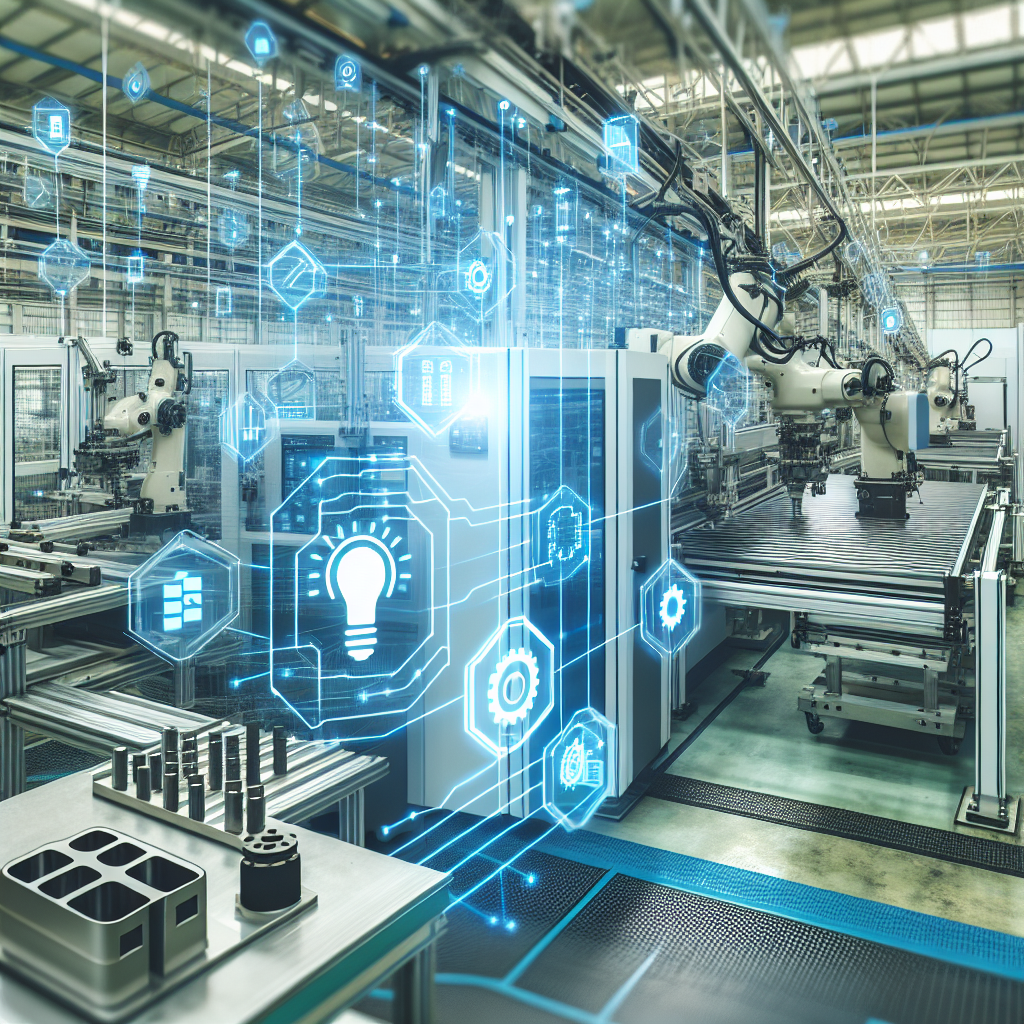Artificial intelligence (AI) has revolutionized the manufacturing industry in recent years, bringing about significant changes in how products are designed, produced, and delivered. From predictive maintenance to quality control, AI is transforming the way manufacturers operate, leading to increased efficiency, productivity, and cost savings. In this article, we will explore the impact of AI on manufacturing and discuss the various ways in which it is reshaping the industry.
One of the key benefits of AI in manufacturing is its ability to optimize production processes. By analyzing vast amounts of data in real-time, AI systems can identify inefficiencies and bottlenecks in the manufacturing process, enabling manufacturers to make informed decisions that improve overall efficiency and productivity. For example, AI-powered predictive maintenance systems can anticipate equipment failures before they occur, allowing manufacturers to schedule repairs and prevent costly downtime.
AI is also revolutionizing product design and development in the manufacturing industry. With AI-powered design tools, manufacturers can create more innovative and complex products in less time, leading to faster time-to-market and increased competitiveness. AI can also be used to optimize product performance and reduce material waste, resulting in lower production costs and higher quality products.
Quality control is another area where AI is making a significant impact in manufacturing. AI-powered inspection systems can quickly and accurately detect defects in products, ensuring that only high-quality products are delivered to customers. This not only reduces the risk of product recalls and customer complaints but also improves overall customer satisfaction and brand reputation.
Supply chain management is another area where AI is transforming the manufacturing industry. By analyzing supply chain data in real-time, AI systems can optimize inventory levels, reduce lead times, and improve delivery schedules. This results in a more efficient and cost-effective supply chain, enabling manufacturers to meet customer demand more effectively and reduce operational costs.
Overall, the impact of AI on manufacturing is profound, leading to increased efficiency, productivity, and cost savings across the industry. As AI technology continues to evolve, we can expect to see even greater advancements in manufacturing processes, leading to a more competitive and innovative industry.
FAQs:
1. How is AI being used in predictive maintenance in manufacturing?
AI is being used in predictive maintenance in manufacturing by analyzing equipment data in real-time to anticipate potential failures before they occur. This allows manufacturers to schedule maintenance proactively, reducing downtime and improving overall equipment reliability.
2. How is AI improving product design and development in manufacturing?
AI is improving product design and development in manufacturing by enabling manufacturers to create more innovative and complex products in less time. AI-powered design tools can optimize product performance, reduce material waste, and accelerate the product development process.
3. How is AI being used in quality control in manufacturing?
AI is being used in quality control in manufacturing by automating the inspection process and detecting defects in products quickly and accurately. AI-powered inspection systems can ensure that only high-quality products are delivered to customers, reducing the risk of product recalls and improving customer satisfaction.
4. How is AI optimizing supply chain management in manufacturing?
AI is optimizing supply chain management in manufacturing by analyzing supply chain data in real-time to optimize inventory levels, reduce lead times, and improve delivery schedules. This results in a more efficient and cost-effective supply chain, enabling manufacturers to meet customer demand more effectively.
5. What are the potential future advancements of AI in manufacturing?
The potential future advancements of AI in manufacturing include increased automation of production processes, improved human-machine collaboration, and the development of more advanced AI-powered tools for product design, quality control, and supply chain management. As AI technology continues to evolve, we can expect to see even greater advancements in the manufacturing industry.

